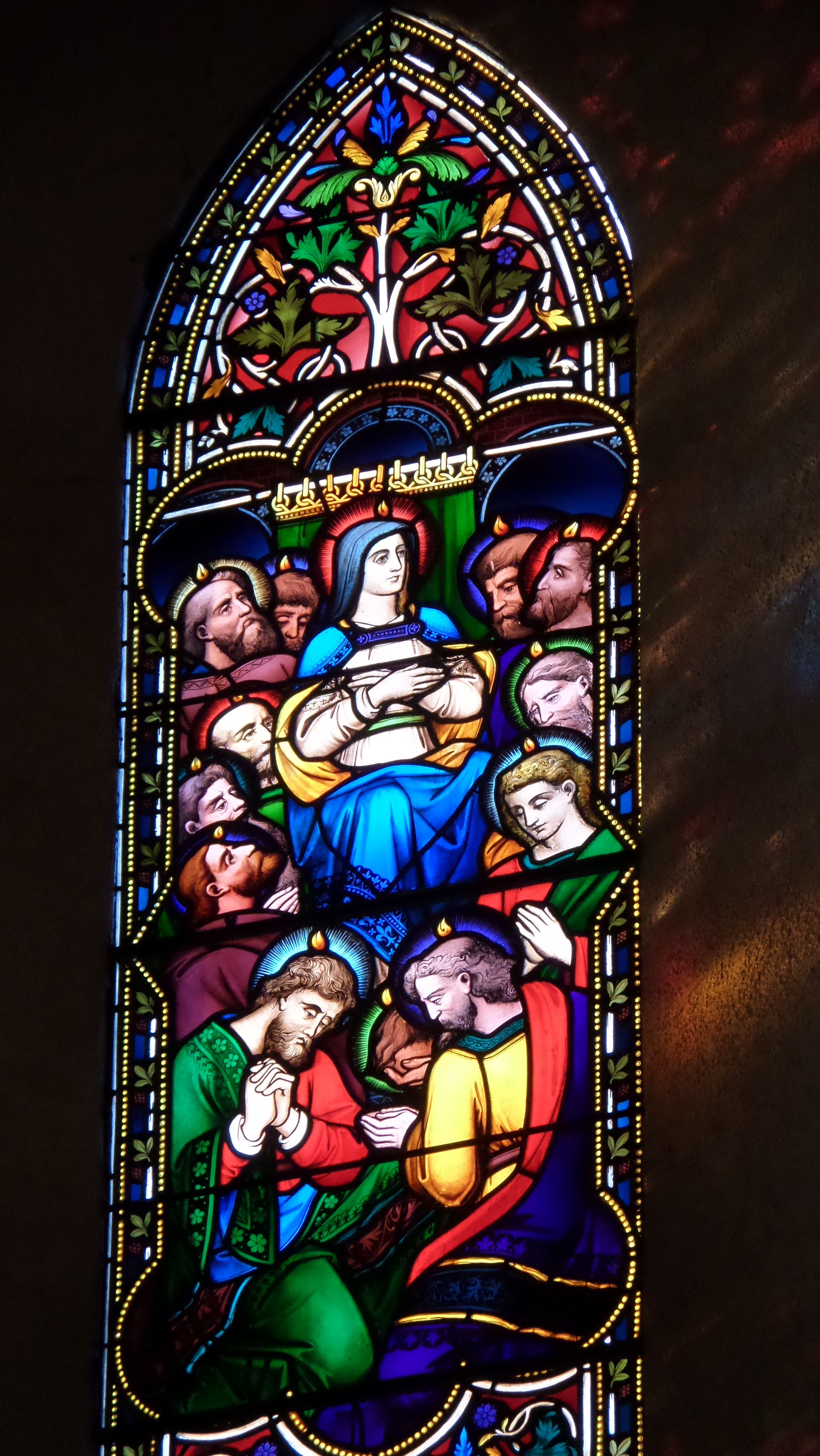Today we celebrate the great feast of All Saints. We all have our favourite holy women and men, our preferred intercessors, our favourite lives of the saints. Through reading and prayer, and the example of their followers, certain saints speak to us in ways that feel personal. But what binds these holy people into one single unity is the same agent that endows us – now – with the same vocation that they have. It is love.
The first letter of St John gives us a startling thought: that we are God’s children. John uses this transformational truth as a way into the love God has for us: “Think of the love that the Father has lavished on us, by letting us be called God’s children; that is what we are.” We all need such a way in, because God’s love is something we find difficult to understand.
We may feel that it is almost impossible to love in the way that Christ asks us to love. But this means that it is possible. The saints are the ones who hear Christ’s commandment and let it seep into every pore of their humanity. The St Francises, the St Theresas, the St Maximilians, all these people: they are defined by the love of Christ. What a thought, that we have the same vocation! But it is true…
Every Christian is called to a life of sanctity. To put it in a more realistic language: we are called to live in a Christ-like way, to follow His precepts, to take up our cross, and to allow the Spirit to set us on fire with His love in this dark and often negative world. We are called to love, despite what we would sometimes rather do, and despite what the world instructs us, which is to blame, to judge and to condemn.
Part of the cross of the saints is crucifying pride and ego by choosing love. We need only read the lives of the saints to realize that this sometimes costs them their lives. But we are not all called to sacrifice our lives in a red martyrdom; choosing love on an everyday level can be just as difficult. Are we going to speak to that person who offended us? Are we going to smile when we’d prefer to ignore? Shall we reach out to the outcast when everyone around us is ignoring them? What are we going to do about that person who is lonely? Have we heard about someone being bullied or oppressed… what shall we do about it?
The beatitudes give us the answer to these questions. They teach us to hunger and thirst for what is right, in a world of oppression and self-exulting fakeness. We should be making peace. We should be merciful. We should be gentle towards each other. We should be poor in spirit, crashing our selfish desire and love of ego on the rock of Christ, and letting others come first.
Christ doesn’t administer these beatitudes with a complex list of exceptions or regulations. They are universal. There is nothing subjective about Christ’s commandment to love. These beatitudes are the ‘inner wiring’ of the Christian and cannot be turned on and off at will. They are our constant yardsticks, whoever’s face is in front of us – friend of foe, adversary or advocate. This is the daily martyrdom of the Christian, through which is sanctification, and by which we attain our sonship and daughtership in God.
We see in the saints a passion for encounter with Christ. Again, this encounter seeps into every pore of their humanity, so that all channels are filled with Him: Christ is found in all relationships, all actions, all decisions, and in the silence of personal prayer. Through Christ, every experience of life can become a way into His love, whether it is giving missionary aid to war-torn countries or blinking an eye. When done for Christ, our actions take on Christian meaning.
It is the Holy Spirit through whom we live in Christ. It is also the Holy Spirit who comes to tell us that God is our Father. “The solution is the Spirit. The Holy Spirit, which is the love of God, is like the wind, ‘no one knowing whence it comes nor where it goes,’ turning everything upside-down and battering on the doors of Jerusalem at Pentecost. The Holy Spirit, being God’s love, God’s fertility, God’s creativity, comes to visit me and say, ‘God is your Father.’ …In vain you may shout that it isn’t true, isn’t possible for God to be your Father. The Spirit goes away , let’s you swear till you’re tired, and then is suddenly back with you again, poised like a dove on the floodtide of your ruins and on the debris of your tiredness, to tell you again: ‘God is your Father, and you will be His children.’” (Carlo Carretto: Summoned by love’.)
We are created for that moment when we see God face to face, the moment we call the beatific vision. St John writes: “We shall be like Him, because we shall see Him as He really is.” Through Christ, we have learnt that the answer to every situation is love. Not the fake love that the world shows us, that fleeting, ‘cute’, haphazard, unstable, weak imposter that we associate with being ‘in’ love, but God’s love, which is the driving force of all life.
Through the love of God, we choose to be like Him. This is the choice of sanctity. Turning to the Beatitudes, we begin to see that, in every moment we encounter, there is something of a foretaste of the beatific vision, a glimmer of heaven in this world below. And as Christ Himself assures us: “Rejoice and be glad, for your reward will be great in heaven.”
